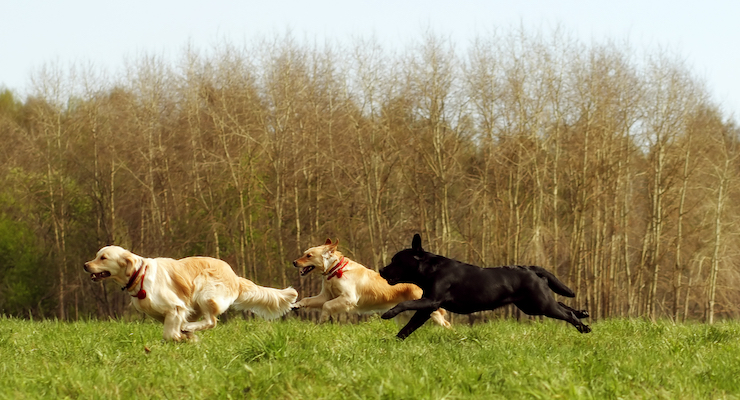Market Updates, Research
Lonza’s Carniking Premix Shown to Improve Protein Turnover and Energy Expenditure in Dogs
The new study builds on previous research showing L-carnitine can benefit exercise recovery and body composition.

By: Mike Montemarano

A new clinical trial funded by Lonza has shown that daily supplementation with 250mg of Carniking, a premix ingredient high in L-carnitine, may increase muscle fat oxidation, inhibit muscle catabolism, and increase energy expenditure in highly active dogs.
As a result of high exercise requirements, working or highly active dogs can be at risk of muscle wasting due to entering into a negative energy balance. This has implications on the animal’s performance, endurance, and recovery, and therefore, overall health and wellbeing. The latest research by Lonza has shown that Carniking premix supplementation can address this by enabling better utilization of dietary fat for energy production, which in turn may allow active dogs to exercise for longer periods of time while recovering more efficiently.
The study, which was published in the peer-reviewed Journal of Animal Physiology and Animal Nutrition, was conducted at Four Rivers Kennel in Nevada, Missouri using Labrador retrievers. Building on evidence from previous research conducted by Lonza and Four River Kennels which found supplementation can improve exercise recovery and body composition, the researchers of the present study found that Carniking supplementation was able to help dogs maintain lean muscle mass and reduce muscle damage after exercise. This was based on the fact that supplementation increased total, free, and esterified L-carnitine in muscle and serum. Muscle damage or degradation following running exercise was significantly reduced in dogs supplemented with L-carnitine when compared with placebo.
“Our research partnership with Lonza continues to build a robust bank of scientific evidence on the impact of L-carnitine on canine exercise performance and recovery. One of the key findings of this latest study is L-carnitine’s influence on body composition. The ability of L-carnitine to help the body use expendable tissue, namely fat, for energy while preserving lean muscle mass has exciting implications for energy expenditure, weight management, and endurance. While the study clearly demonstrated the benefits of L-carnitine for both male and female active dogs, it generated exceptional results in females – an area that has thus far been largely unexplored,” Crain N. Coon, president and founder of Four Rivers Kennel, said.
Carniking premix was shown to influence the lean muscle mass by determining protein turnover, a key indicator of muscle synthesis. Dogs supplemented with Carniking premix were shown to be more efficient at using energy from their food, as measured by VO2 max for aerobic endurance.. As a result, they were able to exercise for longer, and recover faster, during the set of exercises used in the study.
“This study was the first time we have seen Carniking premix’s influence on protein turnover evaluated and the difference in oxygen consumption and energy expenditure between male and female subjects studied. The results of the research are particularly significant when we consider the benefits of Carniking premix supplementation for highly active dogs – where maximizing energy expenditure and maintaining lean muscle mass is essential to animal performance and health,” Kevin Owen, PhD, global business development head for Animal Nutrition at Lonza, said.
Lonza holds a U.S. patent for L-carnitine use in pet food for its beneficial impact on performance and recovery in active dogs. L-carnitine also has an ingredient definition by the Association of Animal Feed Control Officers (AAFCO) for use in the manufacturing of dog foods, wet and dry treats, and in complete feeds.
Mike Montemarano has been the Associate Editor of Nutraceuticals World since February 2020. He can be reached at mmontemarano@rodmanmedia.com.


